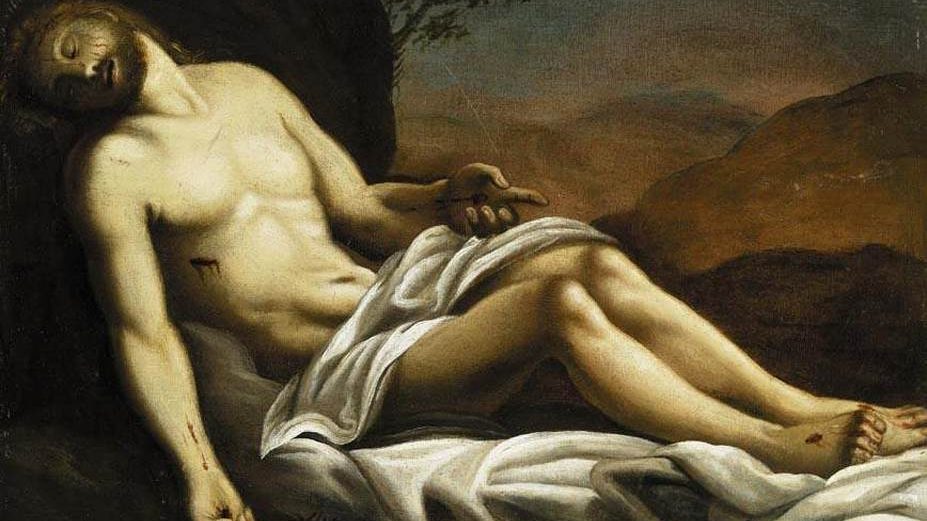The Sleep of Death
32nd Sunday in Ordinary Time (Year A)
“Do not grieve like the rest, who have no hope.“
1 Thess 4:13
Death is never convenient. When we lost my mother-in-law a few years ago, it was after a long period of declining health, so it was somewhat anticipated. By contrast, when my father-in-law died earlier this year it was quite sudden and unexpected. But both are losses that we mourn. Expected or unexpected, their absence leaves holes in our lives. I know many students have similarly suffered the loss of family or friends, and so can relate to the experience.
No matter how or when death enters our lives, it shakes us out of our complacency. Death has no regard for our schedule or plans. It will come for each of us one day or another. We all face death, but as Christians we do not face it without hope.
St. Paul writes in his first letter to the Thessalonians to comfort those who have lost loved ones in the Christian community there. He tells them not to grieve like the pagans who have no hope because Jesus will raise up all those who have fallen asleep (1 Thess 4:13-14). There are a couple of important things to say about this.
First, St. Paul doesn’t say not to grieve. He says not to grieve without hope. There is an important difference. It is perfectly normal and healthy for a Christian to mourn the loss of a loved one who has died. It is a sign of how much we loved that person, and not an indication of a lack of faith. Remember that Jesus himself wept over the death of His friend Lazarus, even though Jesus was about to raise him from the dead (see Jn 11:1-44).
The second point has to do with St. Paul’s description of those who have died as being “asleep.” Some make the mistake of interpreting this too literally, thinking that the souls of the departed are in a state of unconsciousness, like sleep, while they await the resurrection at the Second Coming of Christ. This is not Church teaching. In fact, St. John’s vision of heaven in Revelation shows the saints in heaven as being very alert and actively worshipping God. This is why the saints can intercede for us by their prayers. Likewise the souls in purgatory are awake and alert as they undergo their final purification before heaven. And there is no reason to assume that the souls of the damned in hell are any less aware of what is happening to them.
St. Paul refers to the souls of the dead as being “asleep” because death, like sleep, is a temporary state that we will one day “awake” from at the general resurrection. When Christ returns (whenever that will be), the souls of all the dead will be reunited with their bodies, the righteous to eternal life and the wicked to eternal punishment (cf. Acts 24:15, Mt 25:46). Our hope as Christians is not merely for a “happy death” but for eternal life, and life for a human being means body and soul united together. Jesus is the first fruits of the resurrection (1 Cor 15:20), and where the head has gone, so will all those who are members of His Body.
When this happens, St. Paul says, those who are still alive on the earth won’t be left out. They will be “caught up” (or in some translations “raptured”) to meet the Lord, so that neither the living nor the dead in Christ will be left behind (1 Thess 4:17). The fact that we will all be together in Christ is consolation for the living who mourn the death of their loved ones (1 Thess 4:18).
What this passage does not say is that at some point all the good Christians will be mysteriously beamed off the face of the earth while the wicked will be left to endure the final period of human history before Christ returns. This idea of the “Rapture” has been popularized in certain books and movies, but it has never been a part of Catholic teaching. It has its origins in ideas first circulated in some British and American Protestant communities in the nineteenth century and is not accepted by most Protestant denominations. I will post a link to further resources on why the Catholic Church rejects this understanding of the rapture below.
The point of this passage is the same as that expressed by St. Paul in Romans 8:38 — not even death can separate us from the love of God. For those united in Christ, whether living or dead, death is no barrier, for Christ Himself has overcome death. And that truly is good news.
- “The Rapture” (tract from Catholic Answers)
- “Should Catholics Believe in the Rapture?” (podcast from Trent Horn)

